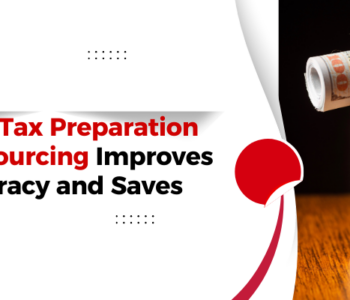 Business
Business
What Is Scope of Appointment in Medicare Advantage FMO in 2025
How to Use Scope of Appointment in Medicare Advantage FMO
When you sign up for a Medicare Advantage plan, there are important rules to follow. One of them is the Scope of Appointment (SOA). If you work with an FMO (Field Marketing Organization) that offers Medicare Advantage plans, you need to understand this rule. It helps ensure that seniors are protected and receive only the information they ask for.
In this guide, we’ll explain why the Scope of Appointment is important, how it works, and why FMOs must follow strict Medicare guidelines. Whether you’re an agent or a beneficiary, this information will help you navigate Medicare Advantage plans easily.
Why Does Medicare Require a Scope of Appointment?
Medicare rules are in place to protect seniors from misleading sales practices. The Scope of Appointment ensures that Medicare beneficiaries only discuss the products they agree to learn about. This prevents agents from pressuring them into buying unwanted coverage.
If you’re meeting with an agent to talk about Medicare Advantage or Part D plans, the agent must get your permission in writing before the meeting begins. This document records what topics will be discussed so there are no surprises.
How the Scope of Appointment Protects Beneficiaries
Medicare beneficiaries often receive numerous sales calls, emails, and mailers about different plans. Without an SOA, agents could discuss any plan they wanted, potentially confusing or overwhelming seniors. The SOA prevents this by limiting the conversation to only the requested topics.
Additionally, the SOA protects beneficiaries from high-pressure sales tactics. Since agents can only discuss pre-approved topics, seniors don’t have to worry about being pushed into coverage they don’t need.
How Does a Scope of Appointment Work?
The SOA process is simple but crucial. Here’s how it works:
- The agent provides a Scope of Appointment form.
- This form lists different Medicare-related products such as Medicare Advantage, Medicare Supplement, and Part D prescription plans.
- The beneficiary selects the topics they want to discuss.
- If they only want to learn about Medicare Advantage, the agent cannot talk about other plans.
- The beneficiary signs the form.
- The form can be completed on paper, electronically, or even recorded over the phone.
- The agent must keep the form on file for ten years.
- This ensures compliance with Medicare regulations.
What Types of Medicare Plans Require an SOA?
Not all Medicare plans require a Scope of Appointment. Here’s a breakdown of when an SOA is needed:
- Medicare Advantage (Part C) Plans – Required
- Medicare Part D Prescription Drug Plans – Required
- Medicare Supplement (Medigap) Plans – Not Required
Since Medigap plans don’t require an SOA, agents can discuss them without prior approval.
What Happens If There’s No Scope of Appointment?
If an agent does not collect a signed SOA, they cannot legally discuss or enroll a person in a Medicare Advantage or Part D plan.
If they do, they may face serious penalties, including fines or losing their ability to sell Medicare plans.
The Consequences for Agents and FMOs
Agents who violate SOA requirements can be reported to Medicare carriers and even lose their contracts. FMOs that don’t enforce compliance can face audits and penalties from insurance carriers and government regulators. This is why top FMOs provide compliance training to agents to prevent costly mistakes.
Medicare Advantage FMOs and Scope of Appointment
A Medicare Advantage FMO is a company that helps independent agents sell Medicare plans. They offer training, technology, and marketing support to help agents succeed.
Since FMOs work closely with Medicare carriers and agents, they must ensure all agents follow compliance rules, including the Scope of Appointment requirement. If an FMO fails to enforce these rules, they could risk their contracts with Medicare plan providers.
The Role of FMOs in Compliance
FMOs act as a bridge between insurance companies and independent agents. They provide resources to ensure that agents follow all Medicare marketing rules. Some ways they help include:
- Providing SOA templates for easy completion.
- Offering compliance training to keep agents updated.
- Monitoring agent activity to prevent violations.
- Assisting with audits if necessary.
How FMOs Help Agents Stay Compliant
The best FMOs provide tools to help agents complete SOAs correctly. These may include:
- Electronic SOA forms for quick processing.
- Automated reminders to ensure forms are submitted before appointments.
- Training programs to educate agents about compliance rules.
FMOs that focus on compliance help protect both agents and beneficiaries from legal trouble.
Common Mistakes Agents Make with SOAs
Many agents make simple mistakes that can cause compliance issues. Here are a few common errors:
- Forgetting to collect the SOA before the appointment.
- Discussing a plan that wasn’t selected on the form.
- Not keeping the SOA form for at least 10 years.
- Using an outdated form that doesn’t meet Medicare requirements.
To avoid these issues, agents should double-check forms before every appointment and work with an FMO that offers compliance support.
How to Avoid SOA Mistakes
Agents should take the following steps to prevent errors:
- Use electronic SOAs to reduce paperwork mistakes.
- Set reminders to ensure forms are completed before meetings.
- Work with an FMO that provides compliance oversight.
By following these steps, agents can stay compliant and build trust with their clients.
Can a Scope of Appointment Be Changed?
Yes! If a beneficiary decides they want to learn about other Medicare options, they can sign a new SOA form. This protects them from unwanted sales pitches while giving them control over their Medicare choices.
If a new plan option is introduced or if a senior’s health needs change, a new SOA can be signed to explore different plans without violating compliance rules. For more information Click here.
Final Thoughts
Understanding the Scope of Appointment is essential for both Medicare beneficiaries and agents. It ensures that seniors receive clear and honest information about Medicare Advantage plans without pressure.
If you’re an agent, partnering with a Medicare Advantage FMO that prioritizes compliance will help you grow your business while staying within the rules. If you’re a beneficiary, always make sure you sign an SOA before discussing Medicare plans with an agent.
By following these simple steps, you can make the Medicare enrollment process smooth and worry-free!









